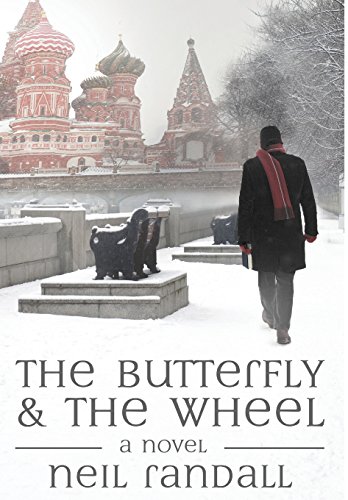The Butterfly and the Wheel
This is a Russian sprawl of a book and as such may appeal to some. The premise is reasonable: the allegations levelled at Mikhail Sholokov regarding the true authorship of And Quiet Flows the Don, a satire on the delusional foundations of a totalitarian regime.
The Butterfly and the Wheel is about a mediocre man, Ivan Turgenovsky, a second-rate writer whose literary aspirations outweigh his talent, yet who flourishes in a society which claims to eradicate inequality, but only propagates it even more. When arrested with student friends in 1916, Turgenovsky is drawn into revolutionary circles. During the civil war he denounces another writer, steals his manuscript, and rises in Soviet society, eventually coming under Stalin’s patronage. Solzhenitsyn, among others, questions his credentials. Turgenovsky has colleagues, friends, and lovers, arrested if they threaten to expose him as a fraud. Later he is awarded the Nobel Prize.
Nine decades of 20th-century Russia are within the four-hundred-odd pages of this book. Consequently, the narrative can only be anecdotal and episodic. It sags beneath the plethora of characters, or rather names, real and fictional, usually unpleasant, most often unmemorable, some the same or similar-sounding. With little or no dimension they come and go, perhaps resurfacing after a couple of hundred pages, by which time this reader had no recollection of who they were or their context. Their dialogue lacks individuality, frequently like speeches, littered with jargon, cliché, slang and chat. I asked to review the book as I am interested in all things Russian, but I found this one hard going.










